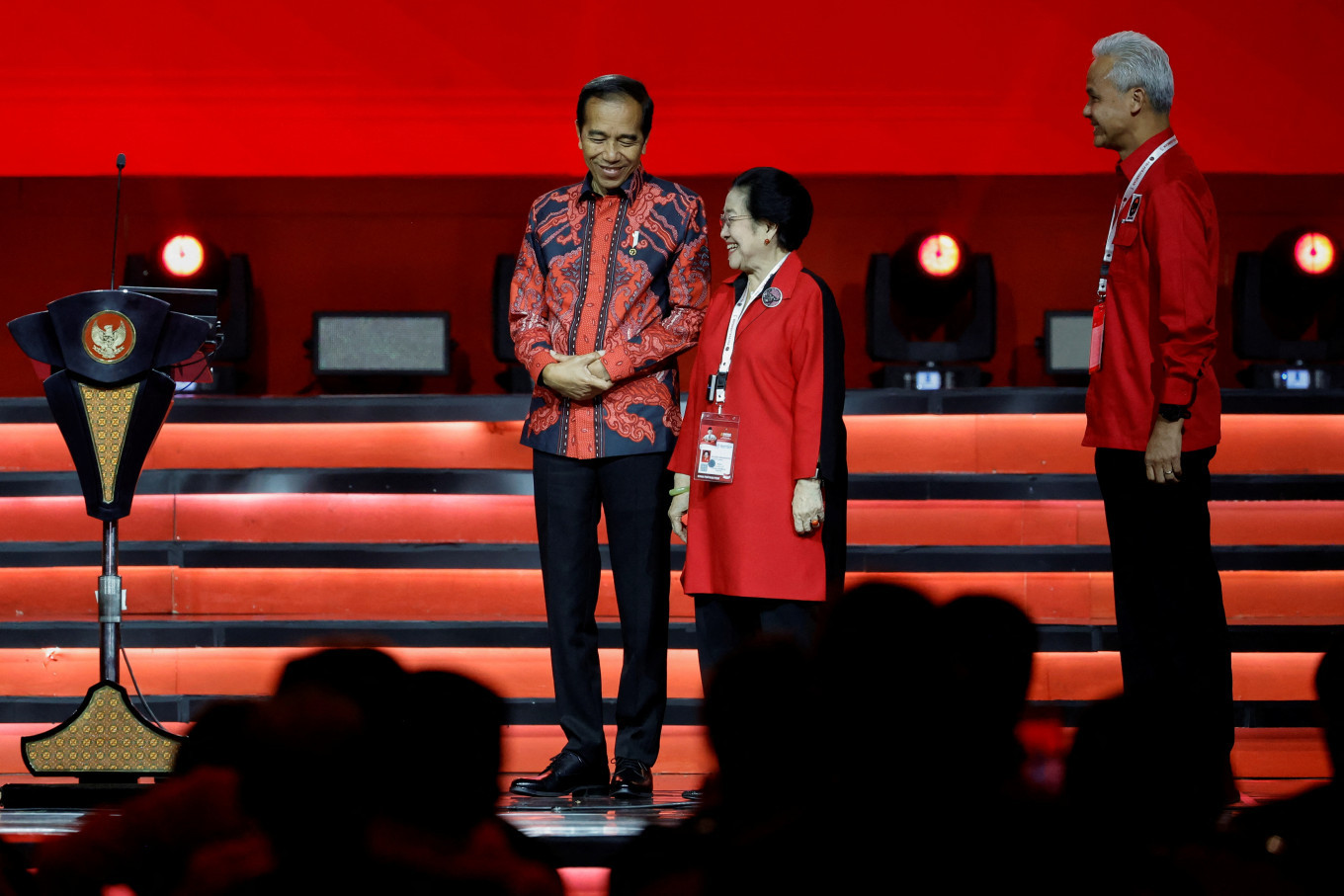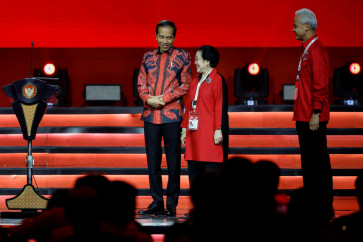Popular Reads
Top Results
Can't find what you're looking for?
View all search resultsPopular Reads
Top Results
Can't find what you're looking for?
View all search resultsAnalysis: PDI-P struggles to stay top, Islamists losing ground in 2024 vote
Change text size
Gift Premium Articles
to Anyone
 Megawati Sukarnoputri (center), leader of the Indonesia Democratic Party of Struggle (PDI-P) talks with President Joko “Jokowi“ Widodo (left) on Sept. 29, 2023, as 2024 election candidate Ganjar Pranowo stands next to them before they pose for a group photo during the party's national meeting in Jakarta. (Reuters/Willy Kurniawan)
Megawati Sukarnoputri (center), leader of the Indonesia Democratic Party of Struggle (PDI-P) talks with President Joko “Jokowi“ Widodo (left) on Sept. 29, 2023, as 2024 election candidate Ganjar Pranowo stands next to them before they pose for a group photo during the party's national meeting in Jakarta. (Reuters/Willy Kurniawan)

The Indonesian Democratic Party of Struggle (PDI-P) is literally struggling to retain its top position in next week's general election, with surveys putting it just ahead of the Gerindra Party. The surveys also show that parties campaigning on an Islamist agenda are further losing ground, but then all elections in the past have always been dominated by secular-nationalist parties.
The PDI-P won the most votes in 2014 and 2019 making it the largest party in the country with the largest number of seats in the House of Representatives. The party at that time benefited from the popularity of Joko "Jokowi" Widodo, who ran for the presidential election on its ticket, and won both times.
This time, the PDI-P's presidential candidate, former Central Java governor Ganjar Pranowo, does not enjoy the same popularity, with surveys putting him in third and last place in the presidential race.
Challenging the PDI-P's position is Gerindra, the party behind Defense Minister Prabowo Subianto whom surveys put in the lead in the presidential race. It is Prabowo's turn, and automafically Gerindra's, to profit from Jokowi's massive "pull factor". Although not running in this race, Jokowi remains a popular figure, able to influence the outcomes of the Feb. 14 presidential and legislative elections.
Jokowi has openly endorsed Prabowo, who is running with his eldest son, 36-year old Gibran Rakabuming Raka. His large band of non-partisan loyal supporters will likely heed his instruction about who to vote for in the presidential race and which party in the legislative election.
All surveys put the PDI-P in the lead, though only just, and it will almost certainly lose the huge margin it enjoyed in 2019. A survey by Poltracking Indonesia in January shows the PDI-P winning 20.1 percent of the vote, higher than the 19.33 percent it won in 2019, but Gerindra comes a close second with 19.9 percent, a 6 percentage point jump from 2019. Other surveys had Gerindra and the PDI-P running neck and neck.

Golkar, the party that had won all six elections under Soeharto in 1972-1998, will likely retain its third place, but with a lower percentage. Also struggling is the Democratic Party (PD), which won the 2009 elections on the back of then incumbent president Susilo Bambang Yudhoyono. The party is now chaired by his son Agus Harimurti Yudhoyono.

















